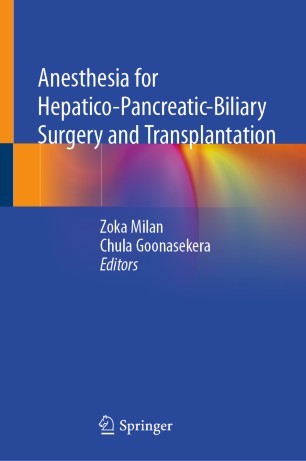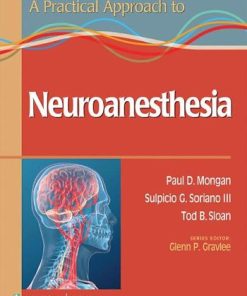Anesthesia for Hepatico Pancreatic Biliary Surgery and Transplantation
د.إ500.00 Original price was: د.إ500.00.د.إ200.00Current price is: د.إ200.00.
Colour Matt Finshed
Anesthesia for hepatico-pancreatic-biliary (HPB) surgery and transplantation is a specialized field of anesthesiology that focuses on providing anesthesia care for surgeries involving the liver, pancreas, and biliary system. This includes a range of procedures, from liver and pancreas resections to transplantation of these organs. Here are key aspects of anesthesia for HPB surgery and transplantation:
1. Patient Assessment:
- Anesthesiologists conduct a comprehensive preoperative assessment, considering the patient’s medical history, liver function, coagulation status, and any underlying diseases that may affect the surgery.
2. Invasive Monitoring:
- Due to the potential for hemodynamic instability during HPB surgery, invasive monitoring of blood pressure, central venous pressure, and arterial blood gases may be necessary.
3. Hepatic and Coagulation Function:
- Assessing hepatic function and coagulation status is critical, especially in patients with liver disease. Anesthesia providers monitor laboratory parameters, including prothrombin time (PT), activated partial thromboplastin time (aPTT), and platelet counts.
4. Airway Management:
- Proper airway management is essential due to the risk of gastroesophageal reflux, aspiration, and airway edema. Anesthesia providers must be skilled in securing the airway safely.
5. Anesthetic Techniques:
- General anesthesia is commonly employed for HPB surgery and transplantation. However, some procedures may involve regional techniques or combined approaches to optimize patient care.
6. Hemodynamic Management:
- Maintaining stable hemodynamics is crucial, as HPB surgeries can involve significant blood loss and fluid shifts. Anesthesia providers closely monitor and manage blood pressure and volume status.
7. Coagulation and Blood Products:
- Coagulation status is carefully managed, and blood products may be administered as needed to correct coagulopathies. Fresh frozen plasma and platelet transfusions may be required.
8. Immunosuppression:
- In organ transplantation, immunosuppression is a key consideration. Anesthesia providers collaborate with the transplant team to ensure the successful induction and maintenance of immunosuppression during transplantation.
9. Intraoperative Assessment:
- Intraoperative assessment of hepatic and pancreatic perfusion and function is performed to guide surgical decisions and optimize organ preservation.
10. Pain Management: – Adequate pain management in the postoperative period is vital for patient comfort and recovery. Anesthesia providers often play a role in developing pain management plans.
11. Complications and Emergencies: – Anesthesia providers are trained to manage potential complications, such as bleeding, hypotension, and anaphylactic reactions, that can occur during HPB surgery and transplantation.
12. Collaboration: – Close collaboration with the surgical team, including HPB surgeons, transplant surgeons, hepatologists, and nursing staff, is essential to ensure coordinated care.
13. Advances in Anesthesia Techniques: – The field of anesthesia for HPB surgery and transplantation benefits from advances in techniques, including minimally invasive procedures and enhanced monitoring, which can lead to improved patient outcomes.
Anesthesia for HPB surgery and transplantation requires a high level of expertise and close collaboration with the surgical team. Anesthesia providers play a crucial role in optimizing patient care, ensuring the safety of the procedure, and contributing to the success of these complex surgeries. Their specialized knowledge and skills are vital in achieving the best possible outcomes for patients undergoing HPB surgery and transplantation.
Only logged in customers who have purchased this product may leave a review.
Related products
Anesthesia Books
Anesthesia Books
Anesthesia Books
Anesthesia Books
Anesthesia Books
Anesthesia Books
Anesthesia Books
Absolute Obstetric Anesthesia Review The Complete Study Guide for Certification and Recertification












Reviews
There are no reviews yet.